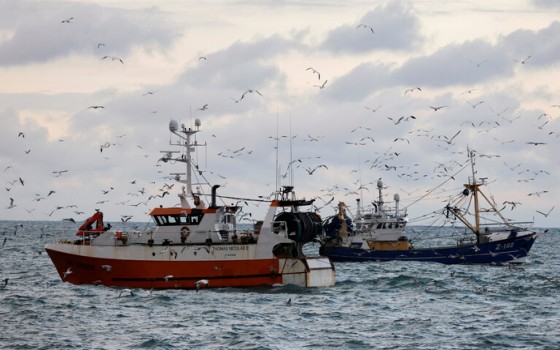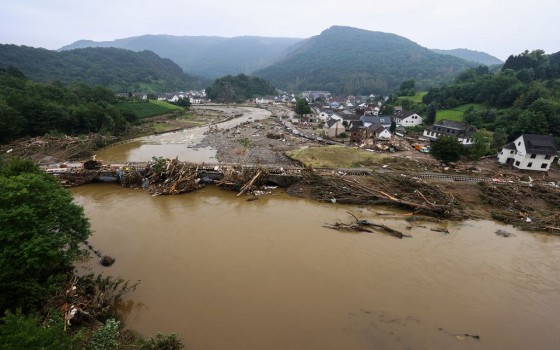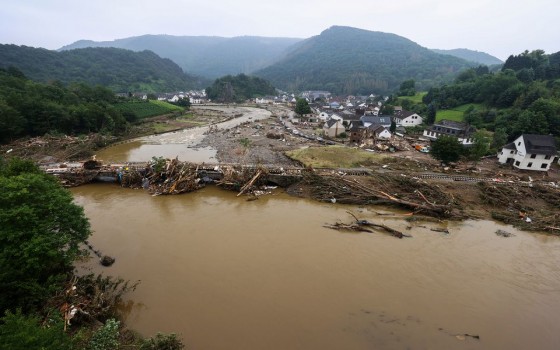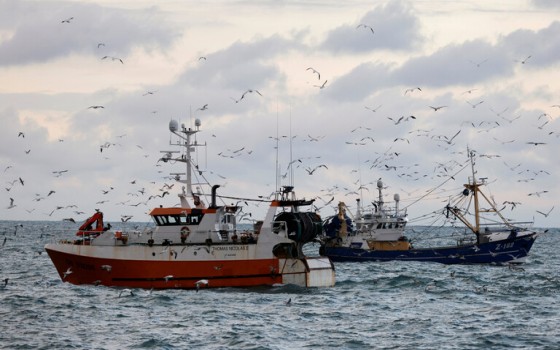
Guterres says the world is paying the 'horrific price' for fossil energy

- Europe and Arabs
- Saturday , 10 September 2022 16:24 PM GMT
AFP
UN Secretary-General Antonio Guterres said developing countries are paying the "horrific price" for the world's dependence on fossil energy, as he inspected areas of Pakistan hit by massive floods, according to climate change experts. Nearly 1,400 people died in the floods that submerged a third of the country, destroying crops and destroying homes, businesses, roads and bridges. Guterres hopes that his visit will contribute to mobilizing support for Pakistan, which needs at least ten billion dollars to restore damaged infrastructure. "Pakistan and other developing countries are paying the horrific price for the intransigence of those behind massive emissions and continue to bet on fossil fuels," Guterres wrote in a tweet before heading out to visit some of the hardest-hit areas. "From Islamabad, I am making a global appeal: Stop the madness. Invest in renewable energy now. Stop the war with nature." The rainy season, which usually lasts from June to September, is essential for the irrigation of crops and the regeneration of water resources in the Indian subcontinent. But Pakistan has not seen rain this heavy for at least three decades. Guterres regretted Saturday the world's indifference to the problem of climate change, especially the industrialized countries, which scientists hold responsible. "It's crazy, it's mass suicide," he said. Pakistan is responsible for less than one percent of global emissions of greenhouse gases, but it is eighth on a list compiled by the non-governmental organization "German Watch" of countries most at risk of extreme weather events caused by climate change. On Saturday, Guterres will tour parts of the southern flood-affected regions, and will visit the historic city of Mohenjo-daro, which is listed on the UNESCO World Heritage List and is endangered by floods. The repercussions of the floods affected nearly 33 million people and destroyed nearly two million homes and commercial establishments, while 7,000 kilometers of roads were inundated and 500 bridges were washed away. The repercussions of the rains were double, with devastating floods for rivers in the mountainous north, and the slow gathering of water in the southern plains. Rozina Solanji, who is in her thirties, who lives in a flooded village near Sukkur (south), hoped that Guterres' visit would have positive results. "All children, men and women are exposed to this stifling heat. We have no food and no roof over our heads. An initiative must be taken for the poor," she told AFP on Friday. The country as a whole recorded an average of five times more seasonal rain in 2022 than usual, according to the Meteorological Department. The small town of Badidan in Sindh province has recorded more than 1.8 meters of rain since the start of the season in June. Hundreds of camps have been set up over the few remaining dry areas in the south and west of the country. Elevated roads or railways are often the last sites not flooded. There are fears of the emergence of epidemics with the accumulation of people and their livestock. Cases of malaria and scabies have been reported











No Comments Found